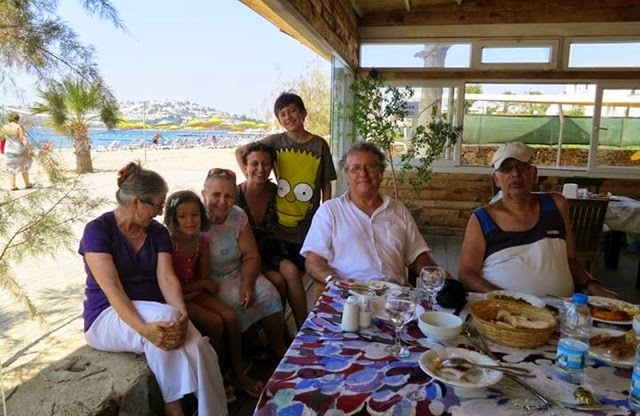 |
| Sesame drying. |
When we bought our land near the village, there was no water apart from a few wells. We planned to collect rainwater in the winter to use in the summer and built a large cistern. In 1992, by the time our house was finished enough to move into, domestic water pipes had been laid and we never got the chance to find out if we could have been self-sufficient. The Karaova plain in front of us is very fertile but without water only tobacco and sesame could be grown in the summer, which meant that, by the end of August, there was very little green to be seen. The scenery is very different today. A comprehensive irrigation project, completed in the mid 90s, distributes water through a series of canals to the whole agricultural area.
Now each family with land on the plain, has a market garden which provides all their summer vegetables and flowers for the house. Everyone knows that we don't grow our own as we are further up the hill and are not lucky enough to have rich soil, so we are always offered veg as we pass by. As we walk past twice a day with the dog, this can be a bit embarrassing for me, as I have managed to retain my annoying English mentality which makes me feel that I am taking advantage if I accept their generosity too often. Despite long years in the UK, Teo luckily has not adopted such a useless mindset and helps himself whenever.
The abundance of courgettes, aubergines, tomatoes and peppers also attracts unwelcome visitors. Wild boar get hungry up in the forest and in one trip down the hill they can wreck a whole field, so gardens can't be left unattended at night. These makeshift shacks house one man and a gun, asleep but with ears primed, ready to blast at the first grunt or snuffle.
A very good reason to make sure Jake is only let out in daylight.


















